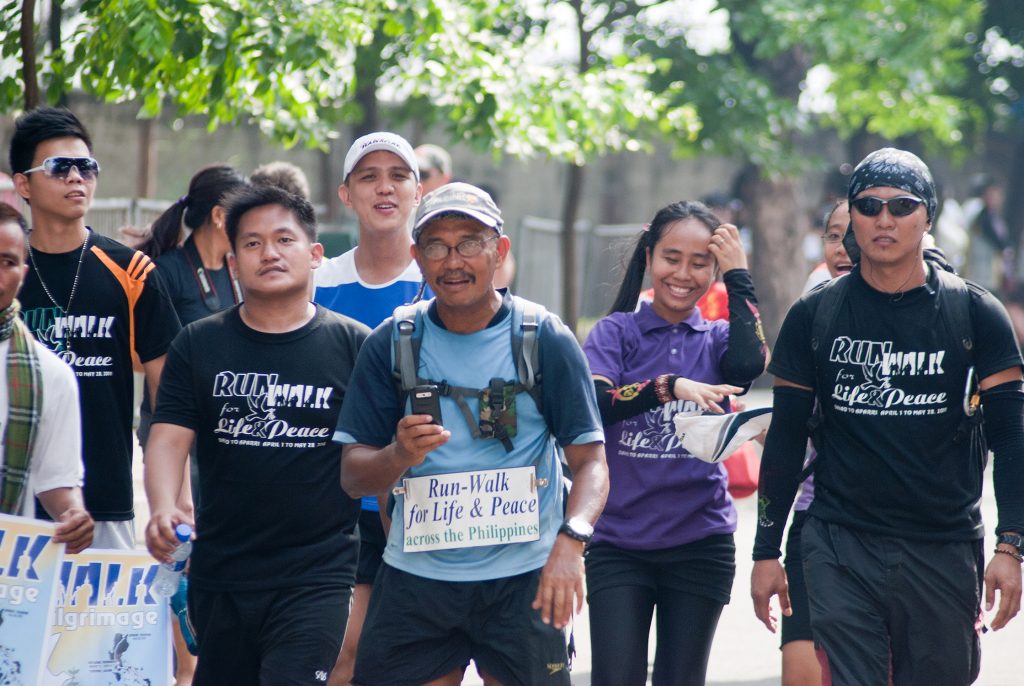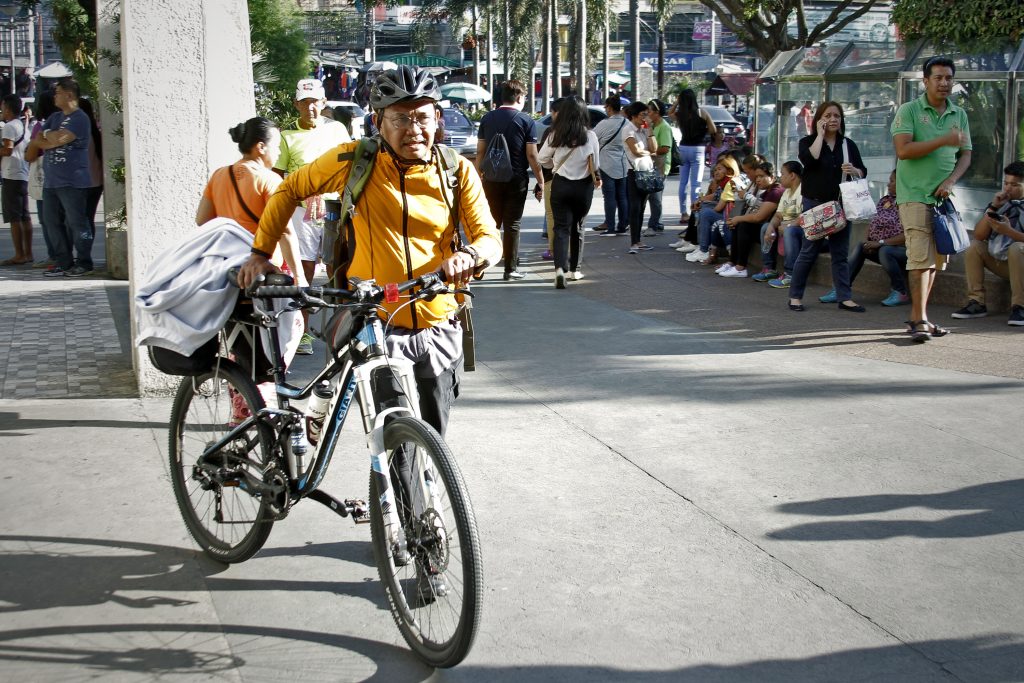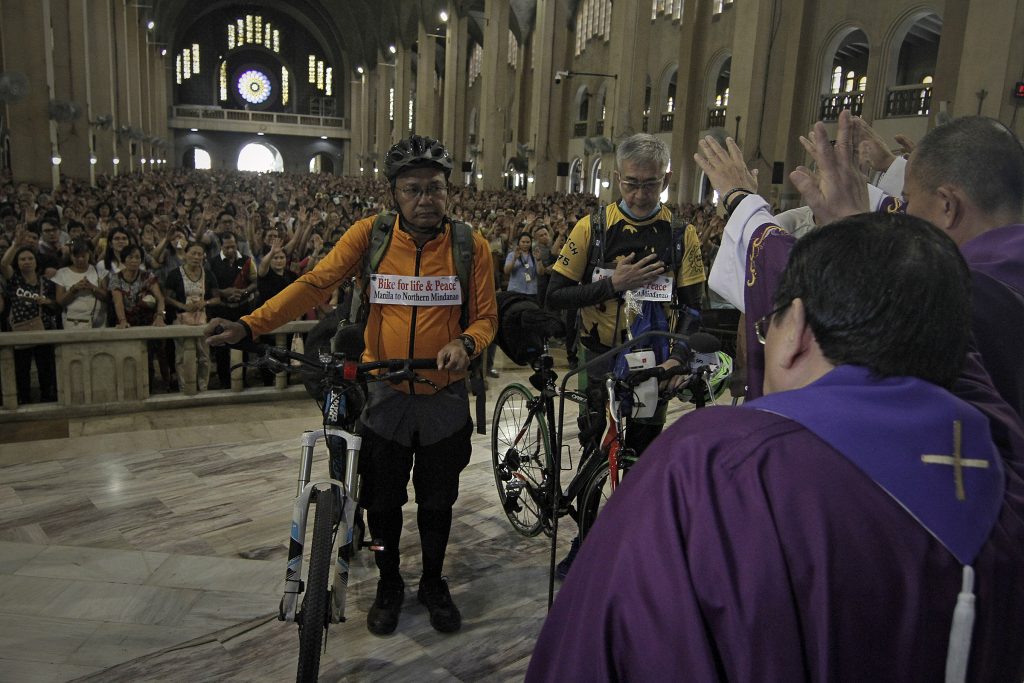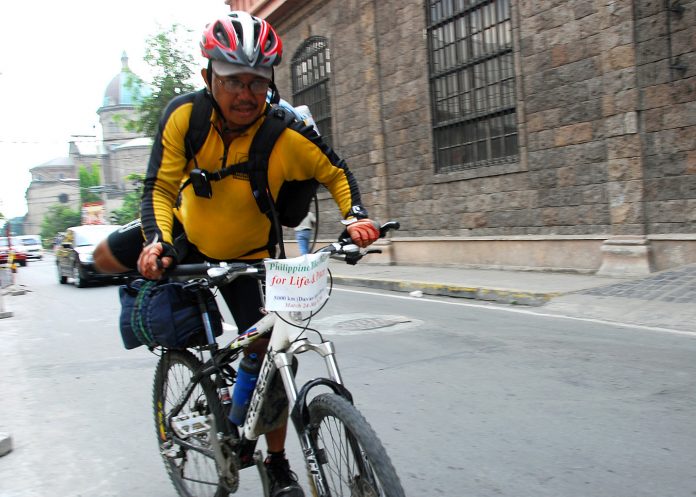The wounds might have healed but the scars from the ordeal remain and his narrative “is not just a construct” of the country’s darkest days.
Redemptorist Father Amado Picardal was a young seminarian when he first experienced the “brutality” of what he describes as a “fascist regime.”
It was the first anniversary of the declaration of martial law when the future priest was nabbed by state agents and brought to a military facility.
At break of dawn on Sept. 21, 1973, Picardal and three other seminarians slipped out of the seminary to distribute mimeographed leaflets calling for resistance to military rule.
The seminarians dispersed to different areas in the central Philippine city of Cebu. They dropped the leaflets on doorsteps and mailboxes in several districts of the city.
Picardal was about to finish distributing his bundle of paper when three armed men nabbed him at gunpoint and told him that he was under arrest.
He was brought to a military camp and was placed under “tactical interrogation” inside a small and dark room without windows.
“What happened next seemed surreal. It was an experience of pain, shame, and humiliation that I tried to forget and did not want to talk about,” he said.
Inside the room, the young seminarian felt helpless and abandoned. He said he felt God seemed so “distant and absent.”
Picardal was subjected to torture while state agents tried to get information from him about the underground movement.
“They took turns interrogating me and hitting my solar plexus, ears, chest, and kidneys every time I refused to answer their questions. I was gasping for air every time they hit me,” he said.
He passed out many times because of the unbearable pain.

He was forced to give the names of the three other seminarians who were arrested but who were immediately released because they were new recruits to the student organization.
After several weeks, Picardal was brought to a detention center with criminal offenders. There, he met other political detainees.
Inside the prison, political detainees were regarded with respect by other inmates.
The inmates knew the kind of suffering and torture that every political prisoner had undergone before they were brought to prison.
Political detainees also gained respect because they know how to explain to the other prisoners how the system pushed them to commit criminal acts.
In prison, Picardal was able to heal his physical wounds.
The seminary did not abandon the young seminarian. The seminary director visited him three times a week and made follow-ups on his case.
On Oct. 28, 1973, he was transferred to a political detention center where 80 other political prisoners were being held.
There he met a priest and a seminarian who were also arrested.
On April 15, 1974, Picardal was finally released with a condition that he will sign a waiver that he was never tortured.
He was also told to report to authorities every week and that he could not leave the city.
He got the release papers after his uncle, who was a retired military colonel, convinced the authorities that his nephew has nothing to do with the underground movement.
“My prison ordeal ended after seven months. I survived. Yet somehow, I was a different person. I had been hardened,” said Father Picardal.

‘The hardest blow’
The torture and his days in prison gave Picardal more reasons to fulfill his promise to God to serve the “Church of the Poor.”
He was ordained a priest on April 24, 1981, and later became instrumental in strengthening Basic Ecclesial Communities in the southern Philippines.
In 1983, he was a young missionary priest in Surigao province when the nightmares of fascism struck again at the doorsteps of his mission house.
Church workers, including the parish priest, were arrested and imprisoned while they were conducting missionary works in poor farming and tribal villages.
Picardal was not arrested but he had to stand his ground to continue the mission despite the threats and intimidation, and to work for the release of his fellow missionaries.
The hardest blow of martial law happened in December 1985 when Picardal’s mother was robbed and killed by alleged members of the Philippine Constabulary.
The family later found out that a gang of soldiers were responsible for the crime.
“I felt helpless and hopeless,” said the priest. “The culture of death and culture of impunity prevailed because of the greed of one man.”
‘Ordeal under another tyrant’
The pains he incurred from the torture chambers, the prison, and the loss of his mother did not stop Father Picardal from speaking truth to power.
When President Rodrigo Duterte assumed power in 2016, the priest was one of the several church people who exposed and opposed the alleged “Duterte Death Squad” in Mindanao.
In March 2018, the priest staged a 15-day “Bike for Peace and Life” that started in the capital Manila to Davao City in Mindanao to call for the end of killings in the country.
However, his missionary works and responses to the “cry of the poor” brought him to a near-death experience again more than four decades since he first witnessed fascism.
On Aug. 11, 2018, six men were outside the Redemptorist monastery in Cebu where Picardal was residing.
The head of security of the compound told the priest not to go outside because there were “suspicious-looking” men who asked for his whereabouts.
A few days before the incident, the same men asked the gardener in the monastery about the priest.

The priest claimed that he was “receiving information that the death squad was going to target priests and that I was on top of the list.”
“I received a text message from a reliable source confirming that I was indeed going to be targeted for assassination by a death squad in March 2018,” Father Picardal told LiCAS.news.
The priest said he believes that he is a target of the “Duterte Death Squad” because “I preached and wrote against the extrajudicial killings for the last 20 years.”
“I also helped provide sanctuary to former members of the death squad who were supposed to stand witness against Duterte,” he said.
“I am not surprised that the president is mad at me. Many years before, when I was in Davao, someone warned me that I should be careful because the mayor was angry at me,” he added.
Immediately after the alleged assassination attempts, Father Picardal’s superiors assigned him in Rome.
Now, he is working with the congregation’s Justice, Peace, and Integrity of Creation Commission in the Vatican.
“I always knew that my life would be at risk and I have accepted this as a consequence of fulfilling my prophetic mission. I am not afraid of death,” he said.
“I am ready to accept martyrdom if they catch up with me, but I do not seek it nor do I make myself an easy target,” he added.
The priest vowed to continue to “speak out against evil in society through my writings and will fast and pray that the Lord will deliver us from evil.”









